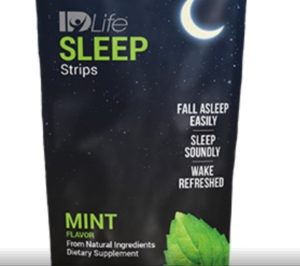Your behaviors during the day, and especially before bedtime, can have a major impact on your sleep. They can promote healthy sleep or contribute to sleeplessness. … The term “sleep hygiene” refers to a series of healthy sleep habits that can improve your ability to fall asleep and stay asleep.
Your daily routines – what you eat and drink, the medications you take, how you schedule your days and how you choose to spend your evenings – can significantly impact your quality of sleep. Even a few slight adjustments can, in some cases, mean the difference between sound sleep and a restless night. Completing a two-week sleep diary can help you understand how your routines affect your sleep.
The term “sleep hygiene” refers to a series of healthy sleep habits that can improve your ability to fall asleep and stay asleep. These habits are a cornerstone of cognitive behavioral therapy [CBT]. The most effective long-term treatment for people with chronic insomnia. CBT can help you address the thoughts and behaviors that prevent you from sleeping well. It also includes techniques for stress reduction, relaxation and sleep schedule management.
Follow these tips to establish healthy sleep habits:
- Keep a consistent sleep schedule. Get up at the same time every day, even on weekends or during vacations.
- Set a bedtime that is early enough for you to get at least 7 hours of sleep.
- Establish a relaxing bedtime routine.
- Drink sleepy time tea
- Take melatonin or use sleep strips a full hour before you want to go to bed
- Read, write in a journal, brush your cat, meditate or pray during the 30 minutes before you try to fall asleep.
- Use your bed only for sleep and sex.
- Make your bedroom quiet and relaxing.
- Keep the room at a comfortable, cool temperature.
- Limit exposure to bright light in the evenings.
- Turn off electronic devices at least 60 minutes before bedtime. Your body actually stops producing melatonin [which is necessary to help your body fall asleep and stay asleep] when you are looking at electronic lighting.
- Do not fall asleep in your chair watching TV.
- Don’t eat a large meal before bedtime. If you are hungry at night, eat a light, healthy snack.
- Exercise regularly and maintain a healthy diet.
- Avoid consuming caffeine in the late afternoon or evening.
- Avoid consuming alcohol before bedtime.
- Reduce your fluid intake before bedtime to decrease the amount of times you need to get up to urinate.
ID Life Sleep Strips offer another way to help you fall asleep easily, sleep soundly, and wake up refreshed and ready for the day.

NOTE: Essential oils and aromatherapy and regular Acupuncture treatment have proven useful in promoting healthy sleep. Go here for information to see if Acupuncture is for you? And here for the top 10 essential oils and what they are used for. Lavender essential oil is especially helpful for restful sleep.

